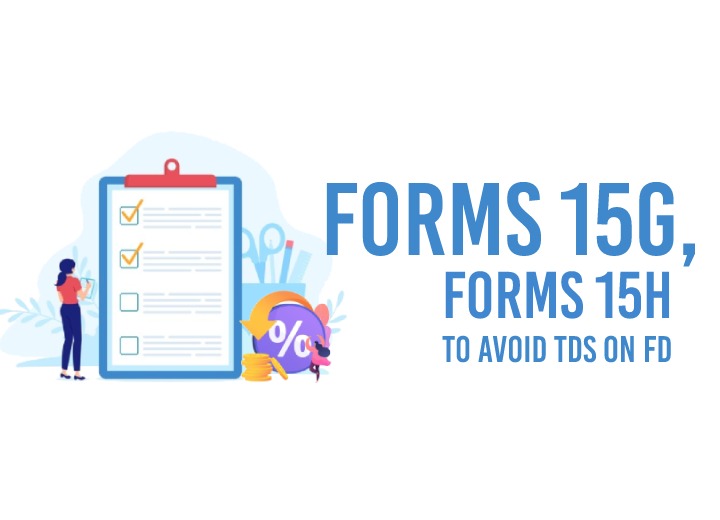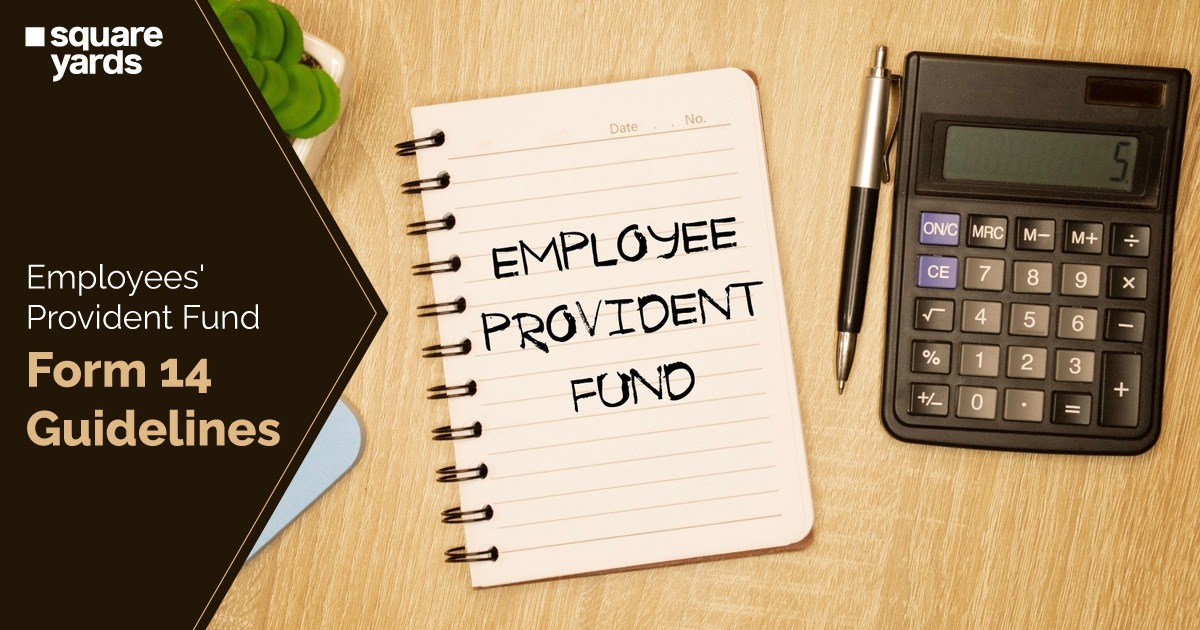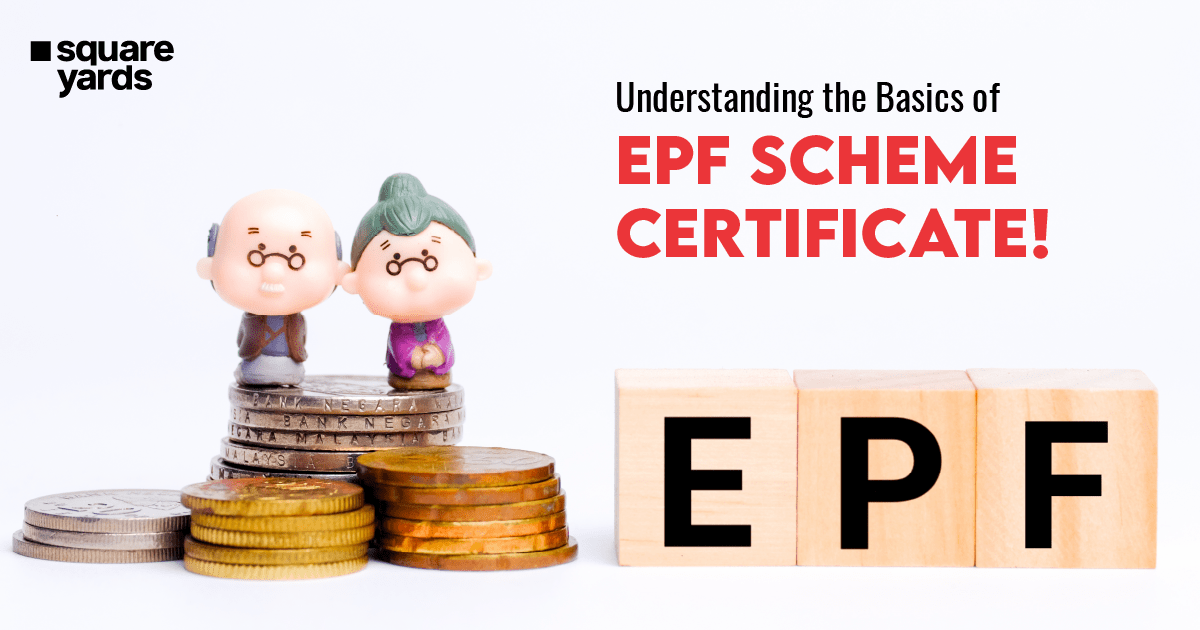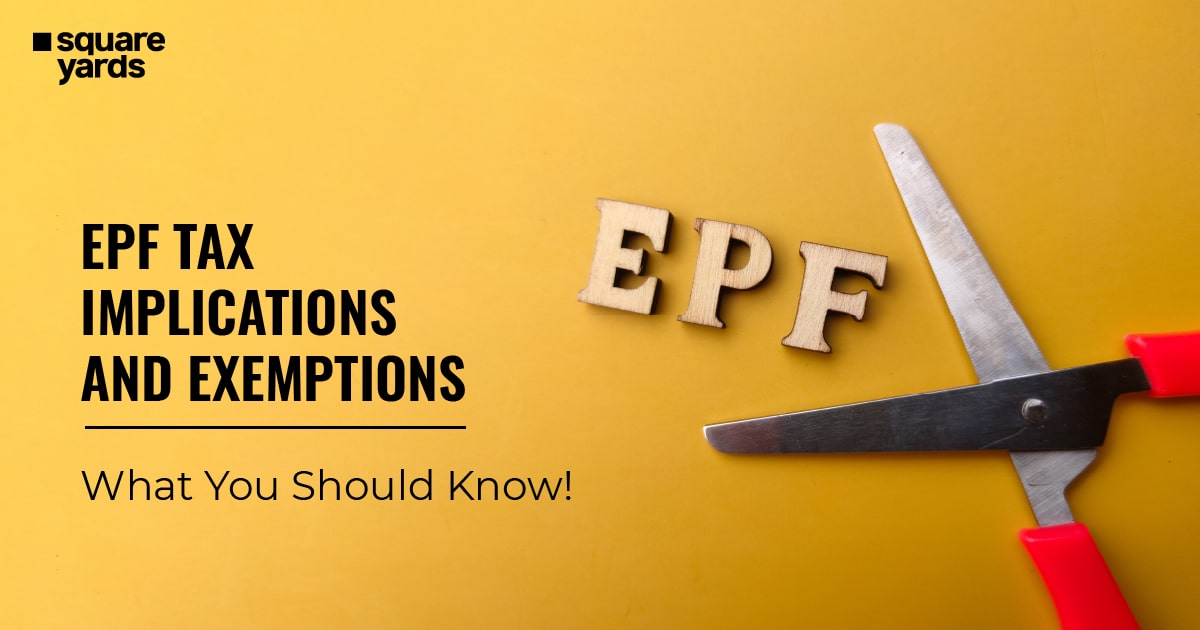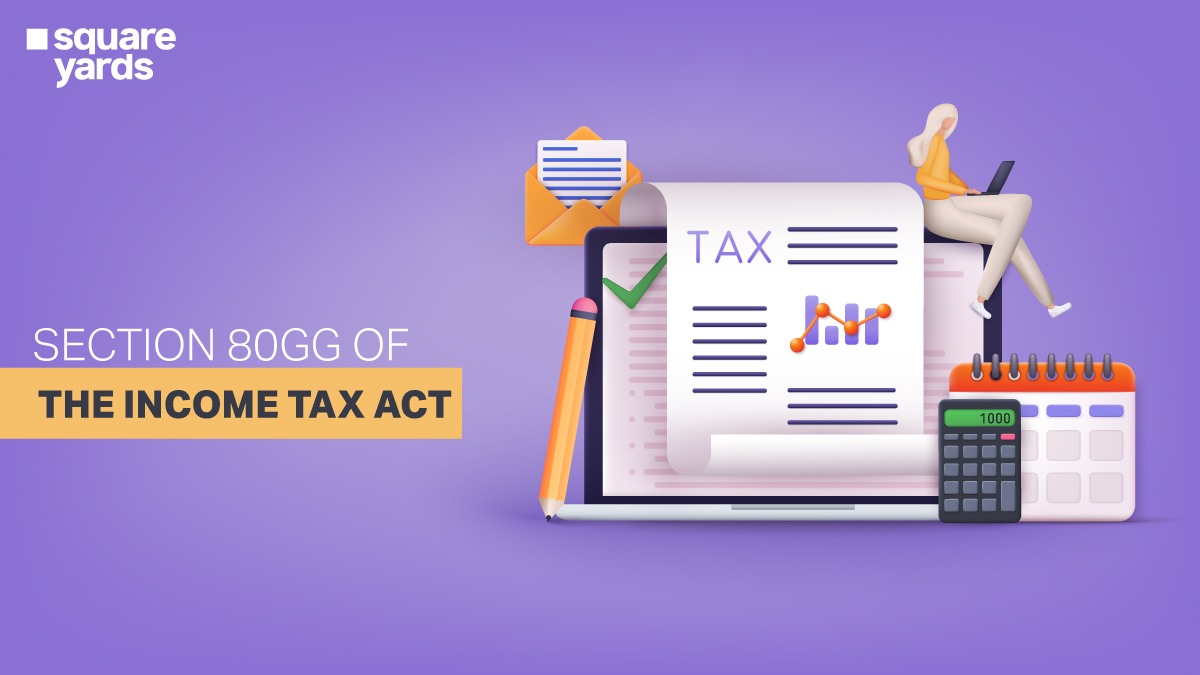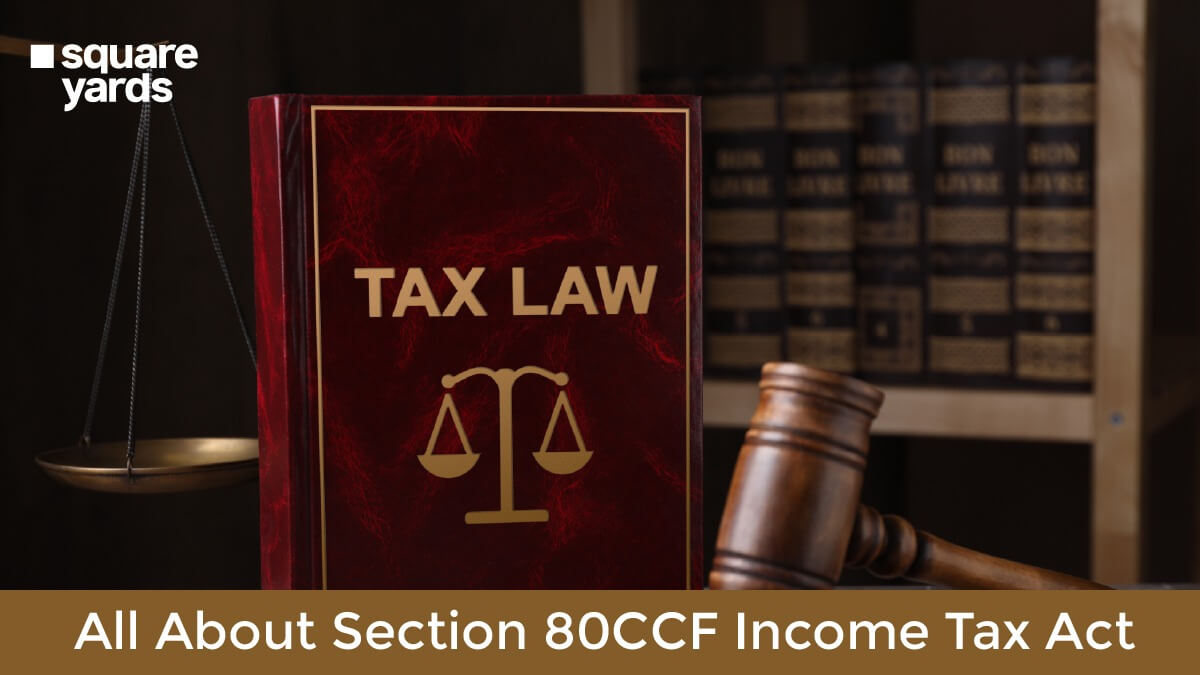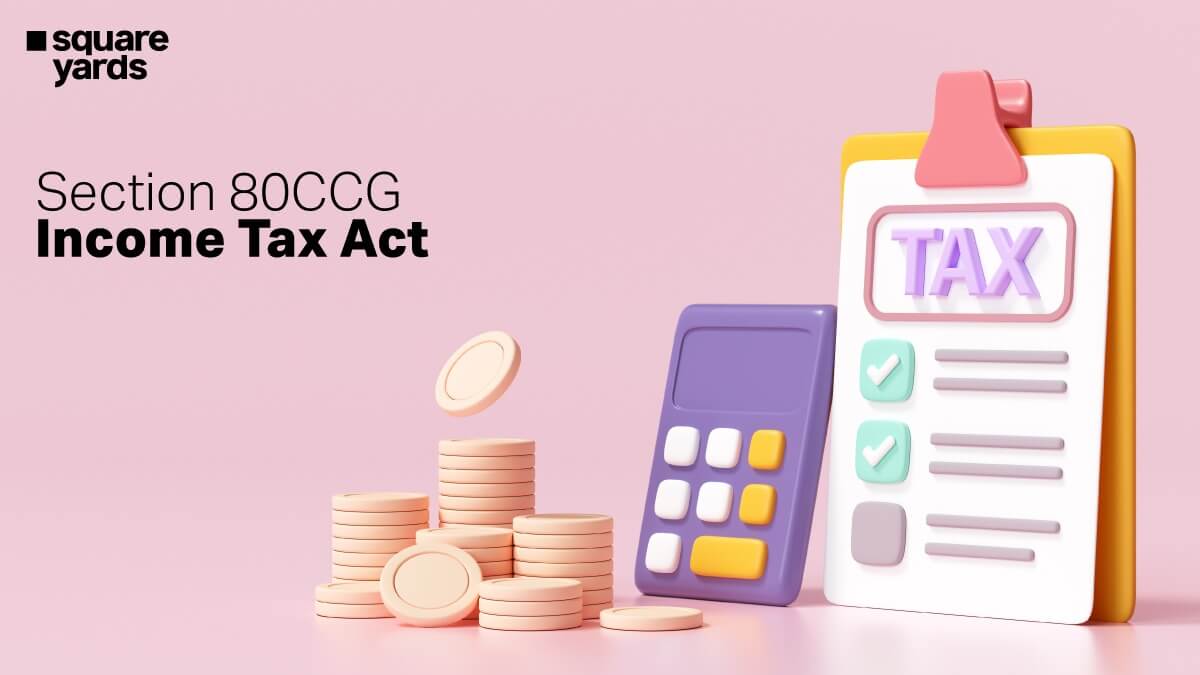If you are not already armed with the realization that you can use Form 15G or Form 15H for corroboration to avoid TDS on FD interest, then now is the time that you know it. Let’s learn how to submit Form 15G and Form 15H to avoid TDS on Fixed Deposit interest.
Fixed Deposits (FDs) count as one of the most preferred investment instruments as it bears a bundle full of perks such as assured fixed returns, tax benefits as well as capital security. But on the other side of the table, they perform to be one of the taxable parameters which is not a treat an individual looks forward to as they cut bits down from the plentiful of benefits. On Fixed Deposit interest, banks must subtract TDS which you may also call Tax Deducted at Source. But you can have a hand from Form 15G and Form 15H to prevent TDS deduction on FD interest.
Uses of Form 15G and Form 15H
| EPF form 15g for PF Withdrawal | Form 15G and 15H To Save TDS Deductions |
In case your income comes below the exempted level you will not be required to come forth for a TDS deduction on the fixed deposit interest you receive. This type of deduction is needful to be carried out at a rate of 10% by the bank. The bank subtracts TDS at a rate of 20% when the depositor does not have PAN, the Permanent Account Number. While you can obviously communicate to that bank that your income stays within the exempted cap and save yourself from the TDS deduction, you can submit Form 15G/Form 15H to avoid TDS on FD.
Let us proceed with this section and know how these forms benefit individuals in terms of FDs.
Table of contents
- TDS on Fixed Deposit- How Does it Work?
- Form 15G or Form 15H Submission: Eligibility Criteria to Avoid TDS on FD
- Form 15G or Form 15H: How to Submit to Save TDS on FD?
- Form 15G or Form 15H: Required Documents
- Form 15G and Form 15H- Tax Refund Claim
- Delay in Form 15G or Form15H Submission for FD
- FAQ’s on Form 15G and Form 15H:-
TDS on Fixed Deposit- How Does it Work?
We have presented here a handful of crucial checkpoints to help you understand how and when TDS is deducted on the interest earned on FD:-
- No TDS Deduction- If your total interest income from Fixed Deposits with a bank is below Rs 40,000 per year then the bank will not be able to commence subtraction of TDS. This cap goes up to Rs 50,000 when the age of an individual is 60 and above.
- TDS at 10%- The bank quantifies your annual interest income from all your fixed deposits upon which you are subject to a 10% TDS deduction in case the interest income you earn surpasses Rs 40,000. The cap is Rs 50,000 in the case of senior citizens.
- TDS at 20%- The bank will be allowed to subtract TDS at a rate of 20% from your deposit if you do not intimate them with your PAN number. Yes, that makes it important for you to make sure that the bank has your PAN number.
There will be no TDS deduction in case the overall income of yours wraps up within the minimum taxable threshold. Here, the FD investors may have earrings of more than Rs 40,000 income in the facet of interest every, but their total income, which also includes the one earned from interest, comes below the income threshold that is exempted.
| TDS Deduction | Applicability |
| No TDS Deduction | For interest income (from FDs) that is less than Rs 40,000 per year. In the case of senior citizens, the cap is Rs 50,000 per year. |
| 10% TDS | For interest income (from FDs) that is above Rs 40,000 per year. In the case of senior citizens, the cap is Rs 50,000 per year. |
| 20% TDS | When the bank does not have your Permanent Account Number (PAN). |
Form 15G or Form 15H: When to Submit? When an individual is not liable to make any tax payment, the bank becomes unable to subtract TDS. So, you can submit Form 15G or 15H with the bank to be able to freely claim interest income without any TDS hovering within.
It is your income tax bracket that acts as a determinant of the taxability of your FD interest income or Fixed Deposit interest. You will have to make less tax payment in case you fall in the lowest bracket of tax. When you fall under the highest one, you become liable to initiate tax payment as an addition to the tax that has been withheld by the bank.
If your income falls below the taxable threshold, then you can claim your Fixed Deposit interest. To do so, you must file Form 15G and Form 15H if you are below the age bar of 60 years if you are a senior citizen. These forms are required to be submitted in the initial phase of a financial year or the applicable budgetary.
Demystifying Form 15H and Form 15G
Form 15H and Form 15G are like self-declaration forms, empowering individuals to inform their bank that TDS should not be deducted from their interest income due to their income falling below the basic exemption limit. It is important to note that providing a PAN is mandatory for this process. Certain banks offer the convenience of submitting these forms online through the official websites. Form 15H and Form 15G are official documents used for self-declaration by individuals to avoid the deduction of TDS (Tax Deducted at Source) on their income. These forms are specifically designed for individuals whose total income falls below the taxable limit, making them eligible for exemption from TDS.
|
Form 15 H |
Form 15 G |
|
Form 15H is typically used by senior citizens (individuals aged 60 years/above) to declare that their income is below the taxable threshold, thus requesting the bank or financial institution not to deduct TDS on their interest income. |
Form 15G is used by individuals who are below the age of 60 and have income below the basic exemption limit. By submitting this form, they notify the bank or financial institution that their income does not exceed the taxable limit, thereby preventing TDS deduction on their interest income. |
|
Senior Citizen: Resident Individual aged 60 years/above |
Resident Individuals, HUFs, Trusts, and Other Assessees (excluding Companies and Firms) below 60 years of age. |
|
Zero Tax Liability: No Tax Calculated on Your Total Income. |
Zero Tax Liability: No Tax Calculated on Your Total Income |
Both Form 15H and Form 15G are crucial in ensuring that individuals who meet the specified criteria are not subject to unnecessary TDS deductions, allowing them to retain their earnings without any tax deductions at the source.
Form 15G or Form 15H Submission: Eligibility Criteria to Avoid TDS on FD
Here is a straightforward set of eligibility standards that must be met by individuals to submit Form 15G or Form 15H in order to prevent TDS deduction on FD interest income-
- Individuals who are below the age of 60 must file Form 15G.
- Any Trust or Hindu Undivided Family will also submit Form 15G.
- Individuals who are more than 60 years of age must file Form 15H.
- Non-Resident Individuals or companies are not eligible to submit these forms.
You must also note that the forms that must be submitted in concern with the fixed deposit investment vary across different banks and depend on the individual. The age limit in the subject is decided as per the bank’s criteria which is not to be treated as applicable for all banks.
How to Download Form 15G and Form 15H?
Streamlining the process of reducing your TDS (Tax Deducted at Source) burden is now easier than ever with Form 15H and Form 15G. You can easily download Form 15G, which helps in reducing the burden of TDS (Tax Deducted at Source), from the websites of major banks in India. The good news is that this form is available for free. You can also obtain Form 15G from the official website of the Income Tax Department. With these accessible options, acquiring Form 15G is a hassle-free process.
Most banks in India offer Form 15H in a fillable format on their websites. However, you can also download this form for free from the official Income Tax website. Once you have obtained the form, simply print it out and complete all the required fields. Remember, in order to effectively decrease your TDS burden, you must submit a separate Form 15H with each bank or post office where you hold deposits. By leveraging Form 15H, you can take proactive steps towards minimizing your overall TDS deductions. So do not wait; download it today and gain greater control over your tax liabilities.
Form 15G or Form 15H: How to Submit to Save TDS on FD?
You can submit Form 15G or Form 15H in physical form or you can opt for the online method. In case of the online form submission, you will receive a Unique Identification Number or UIN.
If you have multiple fixed deposit accounts across different branches of the relevant bank or different banks, you will still be required to submit these forms at every branch before the payment of the first interest instalment.
You can reach out to the concerned bank to submit the form. In case you’d like to submit Form 15G/15H online, then you can navigate to the bank’s official portal.
At What Time Should Form 15G and Form 15H be Submitted?
Submitting Form 15G and Form 15H at the right time offers several benefits:-
- TDS Avoidance: By submitting these forms at the beginning of the fiscal year or when applicable, you can prevent the deduction of TDS on your interest income. This ensures you receive the full amount without tax deductions, enhanci ng your earnings.
- Hassle-Free Process: Submitting Form 15G or Form 15H early on simplifies the procedure and reduces the chances of any oversight or delay. It saves you from the inconvenience of later claiming a refund for the deducted TDS amount.
- Continuous Exemption: When you submit the forms in a timely manner, the exemption from TDS remains in effect for the entire fiscal year. This means you can enjoy the benefits of tax-free interest income for an extended period, maximizing your savings.
- Financial Planning: By knowing in advance that TDS will not be deducted from your interest income, you can better plan your finances and allocate your funds accordingly. This allows for improved budgeting and utilization of your resources.
By being proactive and submitting Form 15G and Form 15H appropriately, you can experience these advantages and optimize your financial situation.
To Maximize Tax Exemption: Submit Form 15G or Form 15H at the Beginning of the Fiscal Year – For optimal results, it is advisable to submit your Form 15G or Form 15H at the start of the fiscal year. Doing so lets you declare your projected income for the entire fiscal year and ensure it remains within the eligible tax exemption limit. This proactive approach allows you to avoid TDS deductions on the interest earned throughout the fiscal year. Take advantage of this strategy to minimize your tax liabilities and maximize your savings.
Where Can One Submit Form 15G or Form 15H Apart from Banks?
One might wonder, In addition to banks, where else can he/she submit Form 15G or Form 15H? Well, In addition to banks , Form 15G or Form 15H can be submitted in a few other scenarios to prevent TDS deduction on various types of income:-
- TDS on EPF Withdrawal: If you plan to withdraw your EPF (Employee Provident Fund) balance before completing five years of service and the balance exceeds Rs. 50,000, you can submit Form 15G or Form 15H. However, you must meet the specified conditions and ensure that the tax on one’s total income, including the EPF balance withdrawn, is nil.
- TDS on Your Income from Corporate Bonds: For income earned from corporate bonds that exceeds Rs. 5,000, TDS is deducted. You may submit Form 15G or Form 15H to the issuer to request non-deduction of TDS.
- LIC Premium Receipts: If the sum received from an insurance policy exceeds Rs. 1 lakh and the maturity proceeds are taxable, the insurer deducts 2% TDS. From 1st September 2019, TDS is 5% on the amount of income from maturity proceeds. By submitting Form 15G or Form 15H, you can request the authority to not deduct TDS, if tax on your total income is nil.
- TDS on Post Office Deposits: Digitized post offices also deduct TDS on deposits. You can submit Form 15G or Form 15H, subject to meeting the applicable conditions.
- TDS on Rent: The tax is deducted on annual rent exceeding Rs. 2,40,000 lakh. If a tax on your total income is nil, you can submit Form 15G or Form 15H to request the tenant not to deduct TDS (applicable from 1 April 2019).
- TDS on Insurance Commission: TDS is deducted if the commission earned from insurance exceeds Rs. 15,000 in a financial year. Insurance agents can submit Form 15G or Form 15H to avoid TDS deduction if a tax on their total income is nil.
In these various scenarios, submitting Form 15G or Form 15H allows you to prevent TDS deductions, provided you meet the specific conditions outlined for each case.
Missed Submission of Form 15G or Form 15H: Preventing TDS Deduction
If you unintentionally missed filling out Form 15G or Form 15H, resulting in the deduction of TDS by your bank, don’t worry. Here are the steps you can take to rectify the situation:-
- File Your Income Tax Returns to Claim a Refund: When banks or other deducting agencies remit the TDS amount to the income tax department, they cannot directly refund the deducted amount to you. To reclaim the excess TDS deducted on your interest, the best course of action is to file your income tax returns. Once you file your IT returns, the income tax department will initiate the refund process for the TDS amount.
- Submit Form 15G and Form 15H Immediately: Most banks deduct TDS on a quarterly basis. Therefore, if you have forgotten to submit Form 15G or Form 15H, take immediate action by submitting the forms at your bank or through their website. This will help prevent any further deductions of TDS on your interest.
By following these steps, you can rectify the situation and ensure that your TDS deductions are managed appropriately while maximizing your refund potential.
Facts that You Should Know about Form 15G and Form 15H
Let us look at some facts that You Should Know about Form 15G and 15H:-
- For the fiscal year 2022-23, senior citizens enjoy a higher basic exemption limit of Rs 3 lakh compared to non-senior citizens, who have a limit of Rs 2.5 lakh. As a result, senior citizens can earn a greater income without being liable to pay taxes.
- Form 15G applies to trusts, Hindu Undivided Families (HUFs), and resident Indians below 60 years of age. For resident Indians aged 60 or above, Form 15H is used. It’s important to note that both Form 15G and Form 15H are valid for a single fiscal year and must be submitted annually.
- Form 15G and 15H are applicable only for ‘residents’; hence a non-resident cannot benefit from these forms.
- You cannot submit Form 15G even though your tax on total income is Nil, because your interest income is more than the basic exemption limit.
- Condition of interest income being more than the basic exemption limit is applicable for form 15G only and not for form 15H. Senior citizens can submit Form 15H even if the interest income exceeds the basic tax exemption limit. Although, the taxable income (after deductions) should be below the exemption limit.
- Individuals whose total income falls below the taxable threshold can submit Form 15H or Form 15G to the bank, requesting them to refrain from deducting Tax Deducted at Source (TDS) on the interest amount. These forms enable individuals to receive their interest receipts without any tax deductions.
- In India, banks must deduct TDS when an individual’s interest income exceeds Rs. 10,000 per year. This threshold considers deposits held across all branches of the bank. However, if an individual’s total income is below the taxable limit, they can submit Form 15G or Form 15H to the bank, indicating their eligibility to be exempted from TDS deductions on the interest earned.
Form 15G or Form 15H: Required Documents
Documents always play an important role in determining the TDS that needs to be carried out from your fixed deposit. They can influence the bank to revisit the TDS rate at which the deduction has to be made. As we have already mentioned above, the income bracket you come within impacts the rate of TDS. Besides that, the rate increases if the bank does not have your PAN number.
This makes it imperative for you to make sure that the bank has your correct PAN number while you file these forms.
Apart from the above-mentioned points, here are some other details which you must intimate to your bank at the time of filing these forms-
- Your email address
- Your mobile number
- Occupation details
- Complete residence address
- Details on other sources of income (mutual funds, investments, dividends from Shares, or any other source)
Form 15G and Form 15H- Tax Refund Claim
Bank only deducts TDS on deposits that draw interest more than the prescribed limit. In case the bank ends up deducting TDS for any such deposit even after you have submitted the relevant form, then you can file an income tax return at the end of the concerned financial year to make a refund claim.
Delay in Form 15G or Form15H Submission for FD
If you wish to prevent TDS deduction on your FD interest income, then it is best that you do the needful timely. Delay in submitting the form will result in the bank charging you 1% as a late fee. Apart from that, the bank may deduct the TDS, but it will only provide a TDS certificate at the end of the year in case of delay.
You May Also Read
FAQ’s on Form 15G and Form 15H:-
Q1. Can NRIs submit Form 15G/15H to avoid TDS on FD interest?
Ans: If you are an NRI, you will not be able to use form 15G and Form 15H to prevent TDS deduction on the interest earned on FD.
Q2. Is it Necessary to File Form 15G/15H?
Ans: You do not require to present your form to the Income Tax Department. You can simply hand it over to the deductor who is going to submit your form to the department.
Q3. Is there any TDS waiver on FD interest?
Ans: You can submit Form 15G or 15H to avoid TDS deduction on your Fixed Deposit interest income. To be eligible to do that, your income should not be more than Rs 40,000 per year. If you are a senior citizen, then your income should be less than Rs 50,000 to submit these forms.
Q4. What is the use of Form 15G for FD?
Ans: Form 15G provides a pathway for fixed deposit holders, including individuals below 60 years of age and HUFs (Hindu Undivided Families), to safeguard their interest income from TDS deductions throughout the fiscal year. This declaration is founded under Section 197A of the Income Tax Act of 1961, empowering eligible individuals to prevent TDS deductions on their fixed deposit interest earnings.
Q5. What is the validity of Form 15H?
Ans: The validity of Form 15H is for one financial year.
Q6. Do NRIs need to submit Form 15G or 15H?
Ans: No, Form 15G or Form 15 H are for Indian residents only.


